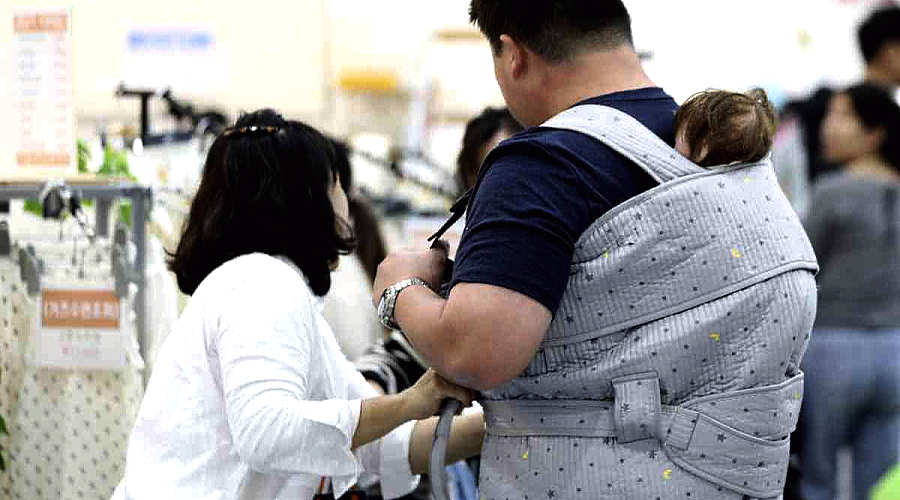
SEOUL: More men are reporting themselves as “economically inactive” — those not working nor seeking work — to provide full-time parenting for their children, data showed Wednesday.
The number of men who were economically inactive in 2023 citing child care stood at around 16,000, according to Statistics Korea, marking an all-time high since related data was first compiled in 1999.
The figure posted a 37.4 percent surge from 12,000 the year before and grew by nearly threefold in a decade from 6,000 in 2013. The figures were provided rounded to the nearest thousand.
While the figure is still relatively low, the increase stems from rising numbers of men taking paternity leave in the past few years here, with 37,885 in 2022, which rose 30.5 percent from the year before, signaling an improvement in perceptions of men providing child care.
By age group, around 8,400 men, or 53.3 percent of the total, were in their 40s, followed by 4,600, or 28.8 percent, who were in their 30s.
The number of women who were economically inactive due to childcare needs last year continued to far outnumber their male counterparts, standing at 840,000 last year.
Yet the figure has been on a constant decline, as more women continue to work after giving birth.
Last year’s 840,000 showed a 14.7 percent drop from 984,000 in the previous year.
By age group, 497,000 women, or 59.1 percent of the total, were in their 30s, followed by 219,000, or 26.1 percent, in their 40s.
As fewer women are giving birth, the proportion of economically inactive individuals due to child care needs, both men and women, has fallen from 1.48 million in 2013 to 840,000 last year.
It is projected that fewer women will be economically inactive for parenting purposes in the coming years.
The female labor force participation rate has increased from 49.8 percent in 2011, to 50.3 percent in 2013, to 53.5 percent in 2019, reaching 55.6 percent in 2023, the highest rate ever.
Meanwhile, Korea’s birth rate, the lowest in the world, has continually fallen. Last year’s total fertility rate stood at 0.72 and it is expected to dip further to 0.68 this year, falling below 0.7 for the first time.
On Wednesday, the Ministry of Gender Equality and Family introduced a set of measures aiming to tackle the low birth rate.
The ministry said it will strengthen government support for its Child Care Service program for dual-income families.
The program links parents to child care workers who can look after children 36 months or younger in their homes.
While government support for child care services is currently provided to some 85,000 households, it will be expanded to 110,000 households.
Dual-income families with two or more children will also be eligible to receive a subsidy for part of the child care costs.
It will also introduce a pilot run of an urgent child care service, which will allow parents to sign up for the service up to two hours beforehand in cases of parents having to work late.
Supporting children from multicultural families with basic learning, bilingual education and career counseling is also on the agenda.
The government will provide educational activity subsidies of between 400,000 won to 600,000 won (RM1,440 to RM2,160) to 60,000 elementary, middle and high school students from low-income households in which one parent is a Korean national and the other a foreign national.
For low-income single-parent households, the general subsidy will be raised from 200,000 won to 210,000 won per month.
Among the recipients, parents aged 24 and under with infants aged 0-1 can receive 400,000 won per month, up 50,000 won from the current 350,000 won.
“Germany and Sweden saw a rebound of their birth rates by finding the balance between work and family,” said Kim Hyun-sook, the former minister of Gender Equality and Family, who officially resigned Tuesday.
“The foundation for resolving the low birth rate can be laid by fostering a family-friendly environment where men and women work and look after their children together, lifting the burden of child care,” Kim said.
Wednesday was Kim’s last day as President Yoon Suk Yeol accepted her resignation a day before.
As South Korea struggles to overcome depopulation due to its continually dropping birth rate, the government has yet to name her replacement.
ADVERTISEMENT
ADVERTISEMENT








































